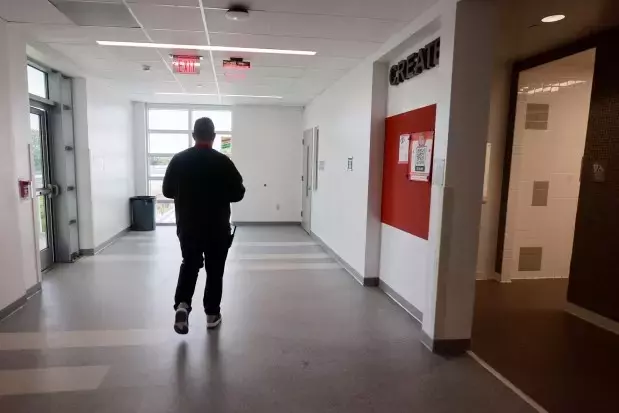



The unveiling of the newly renovated library at Riverside Elementary in Coral Springs marks a significant milestone for the school. This $2 million investment, part of the broader $800 million bond referendum approved by voters in 2014, has transformed the media center into a vibrant learning hub. However, this achievement also highlights the broader issues plaguing the district's bond program, characterized by delays and cost overruns that have strained public trust.
The Triumph of Riverside Elementary's Media Center
The heart of Riverside Elementary now boasts a modernized media center, complete with new paint, flooring, and furniture. The colorful tables and cushioned chairs have replaced the outdated wooden fixtures from the school's opening in 1987. This renovation, along with upgrades to restrooms, air conditioning, roofing, and fire alarms, signifies a much-needed refresh for the school. Despite initial delays and increased costs, the project has finally come to fruition, offering students an enhanced learning environment.
Principal Debbi Hixon emphasized the significance of media centers as pivotal spaces for education. She noted that within these walls, exceptional educational experiences will flourish. However, the journey was not without challenges. Parents had long questioned the timeline and costs, but their patience has ultimately paid off. The ribbon-cutting ceremony on December 12, 2024, marked a celebratory moment for the school community, symbolizing the realization of long-awaited improvements.
Broward School District's Struggles with the SMART Bond Program
The success at Riverside Elementary stands in stark contrast to the broader struggles faced by the Broward County School District's SMART bond program. Initially intended to address critical infrastructure needs, the program has been marred by mismanagement and significant delays. Originally planned for completion by 2021 at a cost of $1 billion, the program is now projected to end in 2025 with a total expenditure of $1.7 billion, a 70% increase.
A statewide grand jury report in 2022 highlighted severe mismanagement, leading to indictments of several administrators, including former Superintendent Robert Runcie. The district's poor planning and execution have left many schools dealing with leaky roofs, moldy conditions, and inadequate facilities. While some projects like libraries and arts rooms have seen positive outcomes, the basics such as roofing and air conditioning remain unresolved. The district aims to finish all projects by October 31, 2025, but skepticism remains about meeting this ambitious deadline. Officials acknowledge the need for systemic improvements and are working towards regaining public trust before considering another bond referendum.
